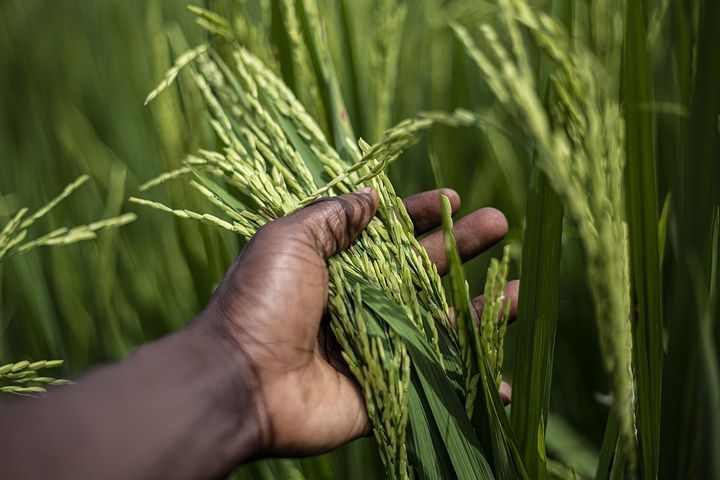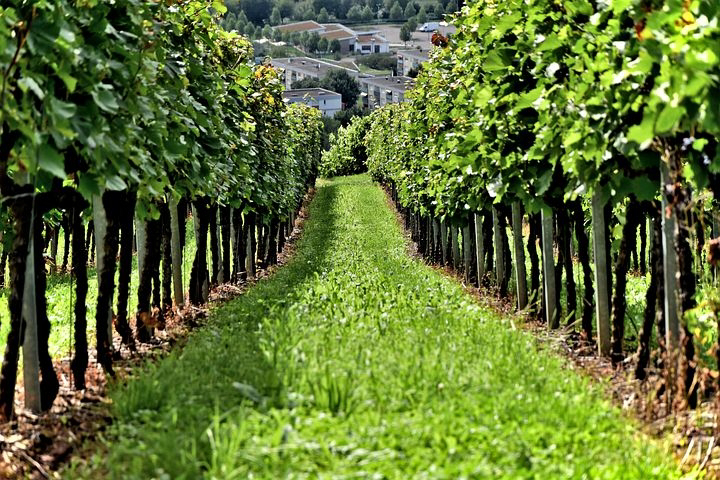CELEBRATING ORGANIC FARMING-MAHASANGRAM Nigeria
Celebrating Organic Farming Awareness Project by Mahasangram took to the heights of enthusiasm as we the Nigeria team began our research and discussion on organic farming under the guidance of Sangram, our head from India.
With the program on organic agriculture which was done to celebrate organic agriculture day which gives many people opportunity in having interest in organic agriculture in Nigeria. Especially Nigeria is very known with agriculture from the old age to this present technology days. I greet my friend who is also the head of the awareness from India Sangram salgar and also everyone one who participated in the program world wide.
As the discussion began, was a sudden play (conversation) between members showing how Nigeria is famous for is agriculture produce which every six geo political zone in the country have it own bases e.g rice, beans, cocoa etc. This dialogue was a portrait of a agriculture company from Africa conversing with Nigeria farmer to obtain coco peat as a use for organic farming.
With this we began to study available research resources, share and arrive at conclusions regarding various aspects of organic farming.
Some main takeaways are;
Organic farming helps in conserving the environment. It has very strong advocacy arm that fights for sustainable system of farming that tries to replicate nature as closely as possible.
Due the to the pandemic many farmers have adapted to organic agriculture and are practicing own methods of compost materials. The unavailability of chemical fertilisers and pesticides has driven this change.
In Nigeria there are many agricultural industries both the public and private. And they had help in the gradual rising in agricultural produce. Some of the programmes are agriculture for all, operation feed the Nation, osun state agricultural development program, oyo state agricultural development program etc.
Challenges in organic farming: High cost, low yield
Organic Farming in Nigeria.
Organic farming represents a deliberate attempt to make the best use of local natural resources and is an environmental friendly system of farming. It relies much on ecosystem management which excludes external input, especially the synthetic ones. Ander son, Jolly and Green (2005) stated that organic farming is a production system that excludes the use of synthetically manufactured fertilizer, pesticides, growth regulators and livestock feed additives. The system relies on crop rotation, crop residues, animal manures, legumes, green manures, off-farm organic wastes, mechanical cultivation and aspects of biological pest control to maintain soil productivity and tilth, to supply plant nutrients and to control insects, weeds and other pests. According to Agbamu (2002), organic farming technology is frequently regarded as the solution to environmental problems that are related to agriculture as well as food safety. Furthermore, Conor (2004) pointed out that organic farming developed as a response to what was perceived to be polluting food supply by modern farming methods and the ensuing degradation of the environment with chemical and other by-products of the industry.
Some conclusions and judgements we arrived at;
Wit innovation developing at a rapid rate with the regeneration of the world, we see that agriculture has helped humans and been an essential aspect of humans survival. But with time and especially colonization impacts and with industrializaton the organic sense in farming has completely or partially wiped out and especially the youth has seen the impacts of it. Ignorance of organic agricultural methods and its main aspects contribution towards one’s immunity has portrayed immensely. Petiyage is a great example of youth farming leader. He portrayed to the society how does organic farming and its potential towards youth plays an impact on present life.
Medias should encourage public in consuming organic food, engaging in organic farming without presenting mere information and challenges of farmers if organic farming is practiced.
Governments should encourage and support individuals in implementing these organic agriculture practices gradually.
Organic farming and consumption is necessary to build up healthy lifestyle whilst conserving and protecting the earth too.
This programme helped us explore, research and gain a vast knowledge on the subject. Hope this drives us for a cause of change by engaging in the smaller contribution steps to larger projects and programmes that aims in upgrading organic farming.
Special thanks SANGRAM SANTOSH SALGAR from INDIA for sharing much information and insights on this project.
Head of Chapter coordinator:
Imran Umar Faruq
Secretary to the chapter:
Waliyullahi
MAHASANGRAM NIGERIA
SANGRAM SANTOSH SALGR
(PROJECT HEAD, PRESIDENT- MAHASANGRAM)










